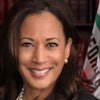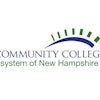RALEIGH, N.C. — North Carolina Attorney General Roy Cooper said he wouldn’t seek to raise income tax rates if elected governor, saying his public education agenda can be met — including raising teacher pay to at least the national average — without doing so.
Cooper’s education plan also includes tuition-free community college, more money for pre-kindergarten programs and increasing per-pupil K-12 spending.
“We don’t need to raise taxes,” Cooper told The Associated Press in an interview, adding that his initiatives can be paid for by earmarking additional revenues generated by the state under current tax rates for public education, not by raising rates.
The Democratic nominee for governor repeatedly has been critical of corporate tax cuts and individual income tax reductions approved by rival Republican Gov. Pat McCrory and the legislature that Cooper argues largely benefits the wealthy. All wage earners, however, have seen their income tax rates decline and standard deductions increase since McCrory took office in 2013.
Under GOP rule in Raleigh, a three-tiered individual income tax system has been consolidated to one lower flat rate of 5.75 percent. It’s scheduled to fall again in 2017 to just below 5.5 percent. The corporate income tax rate has fallen from 6.9 percent to 4 percent and is poised to reach 3 percent in 2017.
Cooper criticized the current emphasis by legislators to keep growing the state’s rainy day reserves, now at nearly $1.6 billion. Legislators and McCrory have said the high reserve amount will help the state avoid dramatic budget cuts during the next recession. Cooper said it doesn’t need to keep getting larger given that education demands are still high for things like textbooks and equipment. But his campaign spokesman, Ford Porter, said Tuesday night that Cooper isn’t proposing to take out money currently in the fund for his education initiatives.
“You’ve got priority needs like teacher salaries and you need to invest in your community colleges and your universities, which is going to create more dollars for revenue,” Cooper said. “You need to invest it and not let it just be sitting there.”
Cooper hasn’t provided details on how he would get teacher salaries to the national average but said the plan would likely cover three or four years. Any proposal would require General Assembly approval. Cooper said it was done before when he was a legislator in the 1990s.
McCrory has highlighted teacher pay raises approved in this year’s state budget he said will raise the average teacher salary – when local supplements are included – above $50,000. North Carolina’s average teacher pay ranked 41st among the states and the District of Columbia during the 2015-16 school year. McCrory said North Carolina should go up in the rankings this year. Republicans argue Democrats allowed average teacher pay to plummet during the Great Recession.
Cooper “has been in his party’s leadership in state government for decades but did nothing as they drove teacher pay to the bottom in the nation,” McCrory campaign spokesman Ricky Diaz said in a release. “And now that he’s running for a higher office, he’s making all sorts of promises.”
In the AP interview, Cooper also defended his relations with law enforcement after McCrory received key endorsements from rank-and-file police officers and state troopers.
Members of the state Fraternal Order of Police walked out of their convention this summer when Cooper answered questions about the case of a Charlotte-Mecklenburg police officer that his office prosecuted in the shooting death of an unarmed suspect. Cooper decided not to seek a retrial after a jury deadlocked in favor of the officer’s acquittal last year.
Cooper, the attorney general since 2001, said he’s had to make “tough decisions in tough cases” but “I’m strongly supportive of law enforcement.” Cooper has received backing from a couple of law enforcement groups and said he’s got the support of some sheriffs.









